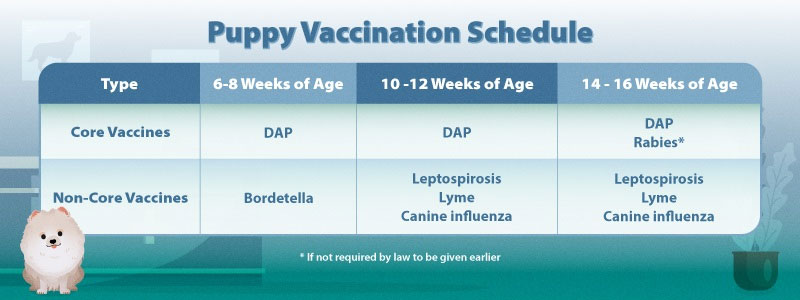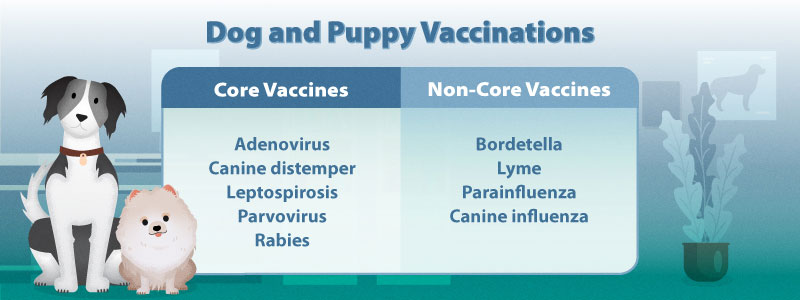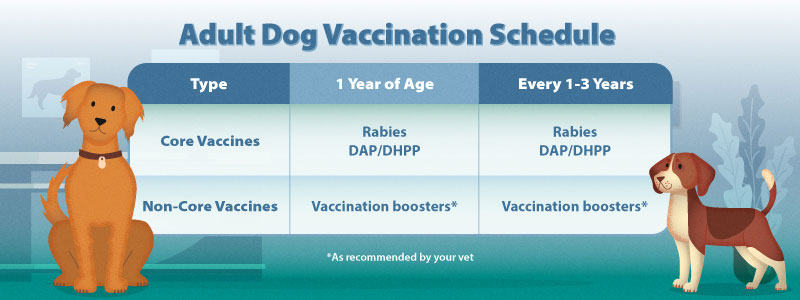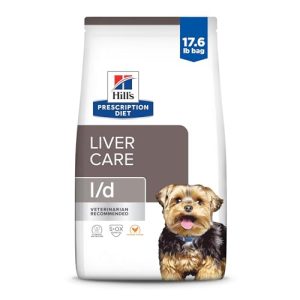If you have a dog, you probably wonder how often your furry friend needs a rabies vaccine. Keeping your dog safe and healthy is important, but the rules about rabies shots can be confusing.
You want to protect your pet and your family without giving more shots than necessary. You’ll find clear answers about the timing and importance of the rabies vaccine. Understanding this can help you make smart choices for your dog’s health and peace of mind.
Keep reading to learn exactly when your dog needs their next rabies shot—and why it matters so much.
Rabies Vaccine Basics
Understanding the basics of the rabies vaccine is essential for every dog owner. Rabies is a deadly disease that affects animals and humans. Vaccinating your dog protects both your pet and your family. Knowing what rabies is and why vaccination matters helps you keep your dog safe.
What Is Rabies?
Rabies is a virus that attacks the brain. It spreads through bites or scratches from infected animals. Once symptoms appear, rabies is almost always fatal. Wild animals like bats, raccoons, and foxes often carry rabies. Dogs can catch rabies if they are not vaccinated.
Why Vaccinate Your Dog?
Vaccinating your dog stops rabies infection. It keeps your dog healthy and safe from the virus. Rabies vaccination is required by law in many places. It also protects your family from possible exposure. Regular vaccines help prevent the spread of rabies in your community.

Credit: ccdogdaycare.com
Initial Rabies Vaccination
Dogs usually get their first rabies vaccine at three months old. After the initial shot, a booster is given one year later. Then, vaccinations are needed every one to three years, depending on local laws and the vaccine type.
The journey of ensuring your dog is safe and healthy begins with the crucial step of initial rabies vaccination. This vaccine is not just a legal requirement but a protective measure against a deadly disease. Understanding when and how to start this process can ease your worries and help you make informed decisions for your furry companion.Age For First Dose
The ideal time for your dog to receive their first rabies vaccine is typically around 12 to 16 weeks old. By this age, a puppy’s immune system is developed enough to respond effectively to the vaccine. Some states may require the vaccination by 16 weeks, so it’s essential to check your local regulations.Types Of Rabies Vaccines
Rabies vaccines come in two main types: the one-year vaccine and the three-year vaccine. The choice depends on your vet’s recommendation and local legal requirements. Both types are effective, but the three-year option might offer more convenience with fewer trips to the vet. Many pet owners wonder about the difference in protection between the two types. Rest assured, both vaccines are designed to provide robust immunity against rabies. Discuss with your vet which option best suits your dog’s lifestyle and your schedule. Isn’t it reassuring to know that a simple vaccination can provide such significant protection? As you navigate the world of pet care, these insights can guide you in keeping your dog safe and sound.Booster Shots Schedule
Keeping your dog protected against rabies means staying on top of booster shots. The schedule for these boosters isn’t one-size-fits-all. It often depends on the vaccine type, local laws, and your dog’s health. Understanding the booster shots schedule helps you plan ahead and keep your furry friend safe without unnecessary visits.
Annual Vs. Triennial Boosters
Some vets recommend annual rabies boosters, while others suggest triennial (every three years) shots. The choice usually depends on the vaccine your dog received initially. For example, a one-year vaccine requires yearly boosters, whereas a three-year vaccine allows for less frequent shots.
Local laws often dictate the minimum frequency for rabies vaccinations. In many areas, the law requires at least a one-year booster after the initial shot. After that, a three-year booster may be allowed if your dog received a three-year vaccine.
Have you noticed how some dogs handle vaccines differently? Annual boosters might feel like overkill for some dogs, but they ensure continuous protection. Triennial boosters reduce stress and vet visits but require strict adherence to the schedule.
Factors Influencing Booster Frequency
Your dog’s age, lifestyle, and health can affect how often they need a booster. Puppies and senior dogs might need closer monitoring and possibly more frequent boosters. Dogs with compromised immune systems may also require special schedules.
If your dog spends a lot of time outdoors or in areas with wildlife, you might choose more frequent boosters. Conversely, indoor dogs with limited exposure to other animals might be fine with the standard schedule. Your vet can help tailor the plan based on your dog’s risk level.
Think about your last vet visit—did your vet ask about your dog’s lifestyle? That’s because it matters. Don’t hesitate to discuss your dog’s daily habits and health history to find the best booster schedule for them.

Credit: www.carecredit.com
Legal Requirements
Understanding the legal requirements for rabies vaccination is essential for every dog owner. These laws exist to protect both public health and your pet’s safety. Knowing what your local rules demand helps you avoid fines and keeps your dog compliant with regulations.
Vaccination Laws By Region
Rabies vaccination laws vary significantly depending on where you live. Some states or countries require annual rabies shots, while others allow a three-year vaccine after the initial shot series. These rules often depend on the type of vaccine used and local rabies risk levels.
For example, in many parts of the United States, dogs must receive their first rabies vaccine at three to four months old. Then, a booster is required one year later, followed by boosters every one to three years, depending on state laws. In contrast, some European countries may have different intervals or additional requirements.
Do you know your area’s specific rabies vaccination timeline? Checking with your local animal control or veterinarian can save you from unexpected penalties.
Pet Licensing And Rabies Proof
Most regions require proof of rabies vaccination to obtain or renew a pet license. The license often acts as official confirmation that your dog is up-to-date on their rabies shots. Without this, you might not be allowed to register your pet legally.
Licensing offices usually ask for a valid rabies certificate showing the vaccine date, type, and expiration. Keep this document handy, as you might need to show it during routine checks or if your dog is picked up as a stray.
Failing to provide rabies proof can lead to fines or even quarantine of your pet. Have you kept your dog’s vaccination paperwork organized? It’s a small step that can prevent big headaches later.
Vaccination Risks And Side Effects
Vaccines protect dogs from dangerous diseases like rabies. Vaccination is mostly safe but can cause mild side effects. Knowing these risks helps pet owners stay calm and prepared. Most dogs handle rabies shots well without issues.
Side effects usually last a short time and go away on their own. Serious reactions are very rare but can happen. Watch your dog carefully after vaccination to spot any problems early. Early care can prevent complications and keep your dog healthy.
Common Reactions
- Mild swelling or soreness at the injection site
- Temporary tiredness or mild fever
- Loss of appetite for a day or two
- Sneezing or coughing in rare cases
- Small lumps under the skin that fade in a few days
When To Contact A Vet
- Swelling spreads or gets worse
- Hives or itching all over the body
- Difficulty breathing or wheezing
- Vomiting or diarrhea lasting more than 24 hours
- Seizures or collapse
- Refusal to eat or drink for more than two days

Credit: www.carecredit.com
Travel And Rabies Vaccination
Traveling with your dog means more than packing their favorite toys and treats. Rabies vaccination plays a crucial role in ensuring your pet’s safety and complying with travel regulations. Understanding the requirements for rabies shots can save you from unexpected delays and keep your journey smooth.
Vaccination For International Travel
If you’re planning to take your dog abroad, many countries require proof of a current rabies vaccination. This vaccine must usually be administered at least 21 days before travel. Some destinations also demand that the vaccine be given within a certain time frame, like within the last year or three years, depending on the vaccine type.
Keep your dog’s vaccination certificate handy—it’s your key document at borders and airports. Without it, your pet might be denied entry or forced into quarantine. Have you checked the specific rules of your destination country yet?
Quarantine Rules
Not all countries have the same quarantine policies. If your dog’s rabies vaccine is outdated or missing, quarantine periods can range from a few days to several months. This can disrupt your travel plans and stress your pet.
Some countries offer exemptions if your dog meets strict vaccination and health requirements. Others require blood tests to prove immunity. Planning ahead helps you avoid surprises and ensures your dog’s comfort.
Are you prepared for the possibility of quarantine, or will you adjust your plans to meet vaccination rules perfectly? Taking the time to understand these regulations makes traveling with your dog easier and safer for both of you.
Tips For Keeping Vaccination Records
Keeping accurate vaccination records helps protect your dog’s health. These records track rabies vaccine dates and other important shots. Organized records make vet visits easier and prove your dog’s vaccination status. Choose a system that fits your lifestyle and keeps updates easy.
Digital Vs. Paper Records
Paper records are traditional and simple to keep. You can store them in a folder or binder. They are easy to carry to vet visits. However, paper can get lost or damaged over time.
Digital records use apps or cloud storage. These records are easy to update and backup. You can access them from any device. Many vet offices also send digital copies by email.
- Paper records are tangible and easy for some owners.
- Digital records are secure and always accessible.
- Choose what you find easier to manage.
Importance Of Timely Updates
Update vaccination records right after each vet visit. This keeps your dog’s health information current. Timely updates help avoid missed vaccines or late boosters.
Clear records protect your dog during travel or boarding. They also prevent unnecessary repeat vaccinations. Set reminders for upcoming vaccine dates.
- Record the vaccine type, date, and vet details.
- Keep copies of vaccination certificates safe.
- Use phone alerts or calendars to track schedules.
Frequently Asked Questions
How Often Should Dogs Get Rabies Vaccines?
Dogs typically need a rabies vaccine every one to three years, depending on local laws and vaccine type. Annual boosters may be required in some areas, while others allow three-year intervals. Always follow your vet’s advice and local regulations for accurate timing.
Can Puppies Receive Rabies Vaccines Early?
Puppies usually get their first rabies vaccine at 12 to 16 weeks old. Early vaccination is not common, as the immune system needs to be mature enough to respond effectively. Consult your vet to schedule the initial shot properly.
Are Rabies Vaccine Boosters Necessary For Dogs?
Yes, rabies vaccine boosters are essential to maintain immunity. Boosters prevent the risk of infection and comply with legal requirements. Missing booster shots can leave your dog vulnerable and may lead to legal penalties.
Is Rabies Vaccination Mandatory For All Dogs?
Rabies vaccination is mandatory in most regions to protect public health. Laws vary by location, but most require proof of vaccination for licensing and travel. Always check local regulations to ensure compliance for your dog.
Conclusion
Keeping your dog’s rabies vaccine up to date protects both pets and people. Dogs usually need a rabies shot every one to three years, based on local laws and vet advice. Regular vaccinations help stop this deadly disease from spreading.
Always check your dog’s vaccine schedule and visit the vet on time. Staying informed and responsible keeps your dog safe and healthy. Don’t let your pet miss these important shots. A simple vaccine can save a life.

Emily Barker is the founder of ChillDogLife.com, a space dedicated to helping pup parents discover the best dog products, lifestyle tips, and cozy ideas for happier homes.
A lifelong dog lover, Emily combines her passion for pets with a knack for research to share trusted recommendations on everything from toys and furniture to health and everyday care.
Her goal is simple: to make life easier, stylish, and more joyful for dogs and the people who love them.







